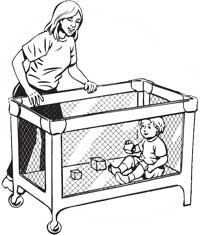Harper Government Announces New Fines to Strengthen the Canada Consumer Product Safety Act
OTTAWA, ONTARIO–(Marketwired – June 4, 2013) – Today, the Honourable Leona Aglukkaq, Minister of Health, announced the Harper Government has introduced new fines of up to $25,000 per day for companies who violate orders under the Canada Consumer Product Safety Act (CCPSA). The Administrative Monetary Penalties (Consumer Products) Regulations coming into force provide a flexible and responsive enforcement approach for dealing with specific incidents of non-compliance with an order made under the Act, such as refusing to comply with a recall order.
“Canadian consumers expect the products they pick up on store shelves to be safe for them and their families,” said Minister Aglukkaq. “By introducing significant fines for companies who violate orders to recall unsafe products, our Government is ensuring that companies who break the law will pay the price.”
Penalties are calculated based on the Administrative Monetary Penalties (Consumer Products) Regulations. They reflect the seriousness of the violation and past violation history of the person or company. The maximum penalties range from $5,000, (for a violation committed by an individual or a non-profit corporation, for non-commercial purposes), to $25,000, (in any other case). These numbers represent daily penalties – meaning that the financial burden on the company can increase with each passing day until the matter is resolved.
“We all share an interest in making sure that Canadians are protected from unsafe consumer products,” said Louise Logan President and CEO of Parachute. “Today’s announcement by Minister Aglukkaq brings in new measures to support compliance with the Canada Consumer Product Safety Act. Canadian parents now have further reassurance that the products they’re buying won’t harm their children.”
Typically, industry voluntarily takes action to address unsafe products. Administrative monetary penalties only come into effect when a company does not comply with government orders to recall a product within specified time frames, or orders to take other measures such as stopping the manufacturing, importation, sale or advertising of a non-compliant product.
“In most cases industry shares our concern for having safe products on the Canadian marketplace,” concluded Minister Aglukkaq. “These penalties will zero in on companies and organizations who won’t take action to protect Canadians from dangerous products.”
Également disponible en français
Health Canada news releases are available on the Internet at www.healthcanada.gc.ca/media
BACKGROUNDER JUNE 2013
Administrative Monetary Penalties (Consumer Products) Regulations
What are the Administrative Monetary Penalties (Consumer Products) Regulations?
The Administrative Monetary Penalties (Consumer Products) Regulations are a key component of the Canada Consumer Product Safety Act (CCPSA). They provide a flexible and responsive enforcement approach for dealing with specific incidents of non-compliance with an order made under the Act, such as refusing to comply with a recall order.
The Regulations prescribe the time and manner in which a monetary penalty under the CCPSA is calculated, modified, or paid, as well as the manner in which certain documents must be provided.
Health Canada expects that the financial penalties issued under the Regulations will encourage compliance with the CCPSA and its requirements over the long term.
When is an Administrative Monetary Penalty issued?
Typically, industry voluntarily abides by Health Canada’s product safety recommendations. Administrative monetary penalties only come into effect when the government orders a company to recall a product or orders to take other measures such as stopping the manufacturing, importation, sale or advertising of a non-compliant product, and the company does not comply within the specified timeframes.
What are the penalties under the Regulations?
Penalties are calculated in accordance with the Regulations and reflect both the seriousness of the violation and any past violation history of the person or company. The maximum penalties range from $5,000, (for a violation committed by an individual or a non-profit corporation, for non-commercial purposes), to $25,000, (in any other case).
Each day that an incident of non-compliance is not addressed represents a separate violation of the Act – meaning that the financial burden on the company can increase with each passing day until the matter is resolved.
Media Inquiries:
Health Canada
(613) 957-2983
Office of the Honourable Leona Aglukkaq
Federal Minister of Health
(613) 957-0200
Public Enquiries:
(613) 957-2991
1-866 225-0709

